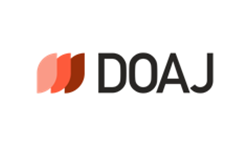КРЕАТИВНИЙ ОБЛІК У ФУТБОЛЬНИХ КЛУБАХ ГРЕЦІЇ
Ключові слова:
Креативний облік, прийоми завищення прибутку, футбольні клуби, Греція.Анотація
Зазначено, що футбольні клуби мають схильність маніпулювати показниками дохідності з метою отримання ліцензій на участь у чемпіонатах, які проводяться під егідою УЄФА. Проаналізовано, чи використовували клуби, які змагалися у грецькій Суперлізі і європейських чемпіонатах, прийоми маніпулювання бухгалтерською звітністю з метою завищення своїх прибутків. У дослідженні застосовано модифіковану економетричну модель Джонса (1991) для розрахунку довільних резервів і нарахувань, здійснених з ініціативи керівництва футбольних клубів, які відображають величину завищення прибутків за період з 2013 р. по 2015 р. На основі статистичного аналізу із застосуванням пакета STATA v. 13 виявлено, що серед грецьких футбольних клубів, які змагаються в європейських чемпіонатах, практика маніпулювання своїми прибутками є більш поширеною, ніж у футбольних клубах, які змагаються у грецькій Суперлізі та мають труднощі з отриманням ліцензій.
Посилання
Ball, R., & Shivakumar, L. (2005). Earnings quality in UK private firms: Comparative loss recognition timeliness. Journal of Accounting and Economics, aa. 83-128.
Baralexis, S. (2004). Creative accounting in small advancing countries - The Greek case. Managerial Auditing Journal, aa. 440-461.
Burgstahler, D., & Dichev, I. (1997). Earnings management to avoid earnings decreases and losses. Journal of Accounting and Economics, aa. 99-126.
Coppens L., Peek E. (2005). An analysis of earnings management by European private firms. Journal of international accounting, auditing and taxation, aa. 1-17.
Dimitropoulos, P. (2011). Corporate Governance and Earnings Management in the European Football Industry. European Sport Management Quarterly, aa.495-523.
Frаnсk, E. (2010). Private firm, public corporation or member’s association governance structures in. International Journal of Sport Finance, aa. 108127.
Goncharov, I., & Zimmermann, J. (2006). Earnings management when incentives compete: The role of tax accounting in Russia. Journal of International Accounting Research, aa. 41-65.
Gore, P., Pope, P., & Singh, A. (2006). Earnings management and the distribution of earnings relative to targets: UK evidence. Accounting and Business Research, aa. 123-150.
Healy, P., & Wahlen, J. (1999). A Review of the Earnings Management Literature and Its Implications for Standard Setting. Accounting Horizons, aa.365-383.
Jones J. (1991). Earnings management during import relief investigations. Journal of Accounting Research, aa. 19-228.
Kothari, SP, Leone, AJ and Wasley, CE. (2005). Performance matched discretionary accrual measures. Journal of Accounting and Economics, aa. 163-197.
Kousenidis D., Ladas A., Negakis C. (2013). The effects of the European debt crisis on earnins quality. International Review of Fanancial Analysis, aa. 351362.
Lo K. (2008). Earnings management and earnings quality. Journal of Accounting and Economics, aa. 350-357.
Othman H., Zeghal D. (2006). A study of earnings-management motives in the Anglo-American and Euro-Continental accounting models: The Canadian and French cases. The international journal of accounting, aa. 406-435.
Scott, W. (2009). Financial Accounting Theory. Toronto: Pearson.
Trombetta M., Imperatore, C. (2014). The dynamic of financial crises and its non-monotonic effects on earnings quality. J. Account. Public Policy, aa.205-232.
##submission.downloads##
Опубліковано
Як цитувати
Номер
Розділ
Ліцензія
Автори, які публікуються у цьому журналі, погоджуються з наступними умовами:
- Автори залишають за собою право на авторство своєї роботи та передають журналу право першої публікації цієї роботи на умовах ліцензії Creative Commons Attribution License, котра дозволяє іншим особам вільно розповсюджувати опубліковану роботу з обов'язковим посиланням на авторів оригінальної роботи та першу публікацію роботи у цьому журналі.
- Автори мають право укладати самостійні додаткові угоди щодо неексклюзивного розповсюдження роботи у тому вигляді, в якому вона була опублікована цим журналом (наприклад, розміщувати роботу в електронному сховищі установи або публікувати у складі монографії), за умови збереження посилання на першу публікацію роботи у цьому журналі.
- Політика журналу дозволяє і заохочує розміщення авторами в мережі Інтернет (наприклад, у сховищах установ або на особистих веб-сайтах) рукопису роботи, як до подання цього рукопису до редакції, так і під час його редакційного опрацювання, оскільки це сприяє виникненню продуктивної наукової дискусії та позитивно позначається на оперативності та динаміці цитування опублікованої роботи (див. The Effect of Open Access).








